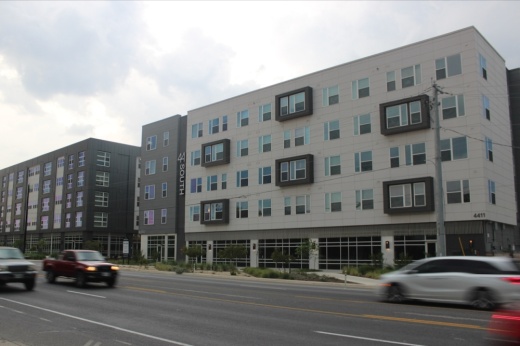What happened
On Dec. 8, 200th District Court Judge Jessica Mangrum ordered that three ordinances approved by City Council throughout 2022 should be voided. The invalidated policies include:
- VMU2, an expansion of the vertical mixed-use bonus program that allows taller buildings if income-restricted housing is included
- Residential in commercial, which allowed for housing development with affordable units in commercially zoned areas
- Compatibility on corridors, which waived building design standards such as height limits along busy roadways
The details
Austinites who objected to the land-use updates said the city had rolled them out while ignoring precedent from a previous legal decision that canceled out a citywide land development code rewrite. Mangrum agreed, saying Austin officials forged ahead with the three ordinances last year despite that previous judgment.
At issue were Texas notice and protest rules, which require property owners are notified of zoning changes in their area and have the chance to formally challenge them. If enough homeowners protest, a supermajority vote would be needed to pass the change in question.
While the three policies affected properties around the city, individual notices were not provided.
"Defendants violated the Permanent Injunction and [Texas law] by providing that unelected staff can approve applications resulting in zoning regulation or zoning district boundary changes without the required notice," Mangrum wrote in her Dec. 8 order. "Defendants violated the Final Judgment’s directive to 'affirmatively inform property owners and surrounding property owners of their protest rights.'"
Mangrum said Affordability Unlocked—which is nearly 4 1/2 years old and was established before the original land development code lawsuit was filed—can remain in place under Texas code that validates government actions after three years.
What they're saying
Doug Becker, the resident plaintiffs' attorney, said the coalition wants to see a change in the city's handling of land-use code updates. He added he now aims to collect at least $150,000 in attorneys' fees from the city following this year's legal process.
“After losing three times in court, we hope, going forward, that the city finally learns from this embarrassing experience, does the right thing, and respects the interests and legal rights of Austin homeowners," Becker said in a statement.
In a statement, City Attorney Anne Morgan said Austin received Mangrum's order Dec. 11 and will be voiding the ordinances in question.
"We are pleased that the judge did not issue the requested sanctions, as the city continues to make efforts to comply with all laws and judicial rulings related to the land development code changes. City management and city council will follow the judge’s ruling," Morgan said.
Becker also said those involved are considering whether council's controversial passage of Phase One of the "HOME" initiative on Dec. 7 was legal. Unlike the previous ordinances however, HOME passed after Austin spent more than $305,000 on hundreds of thousands of individual mailers to notify residents about the city's public hearings over the plan.
Some context
The latest court ruling represents a loss for city officials who hoped the updates would encourage more affordable housing and new construction overall. However, the three programs had not drawn widespread developer interest since their creation.
Only two development applications proposing a combined 118 affordable units had been filed under VMU2 since it was established. A total of 131 income-restricted units had been proposed under residential in commercial, while no applications had been submitted under the compatibility.
Affordability Unlocked, which remains unaffected by the court order, has been far more productive since its creation. As of mid-November, 481 affordable units had been built under the program, and more than 5,300 are now planned.






